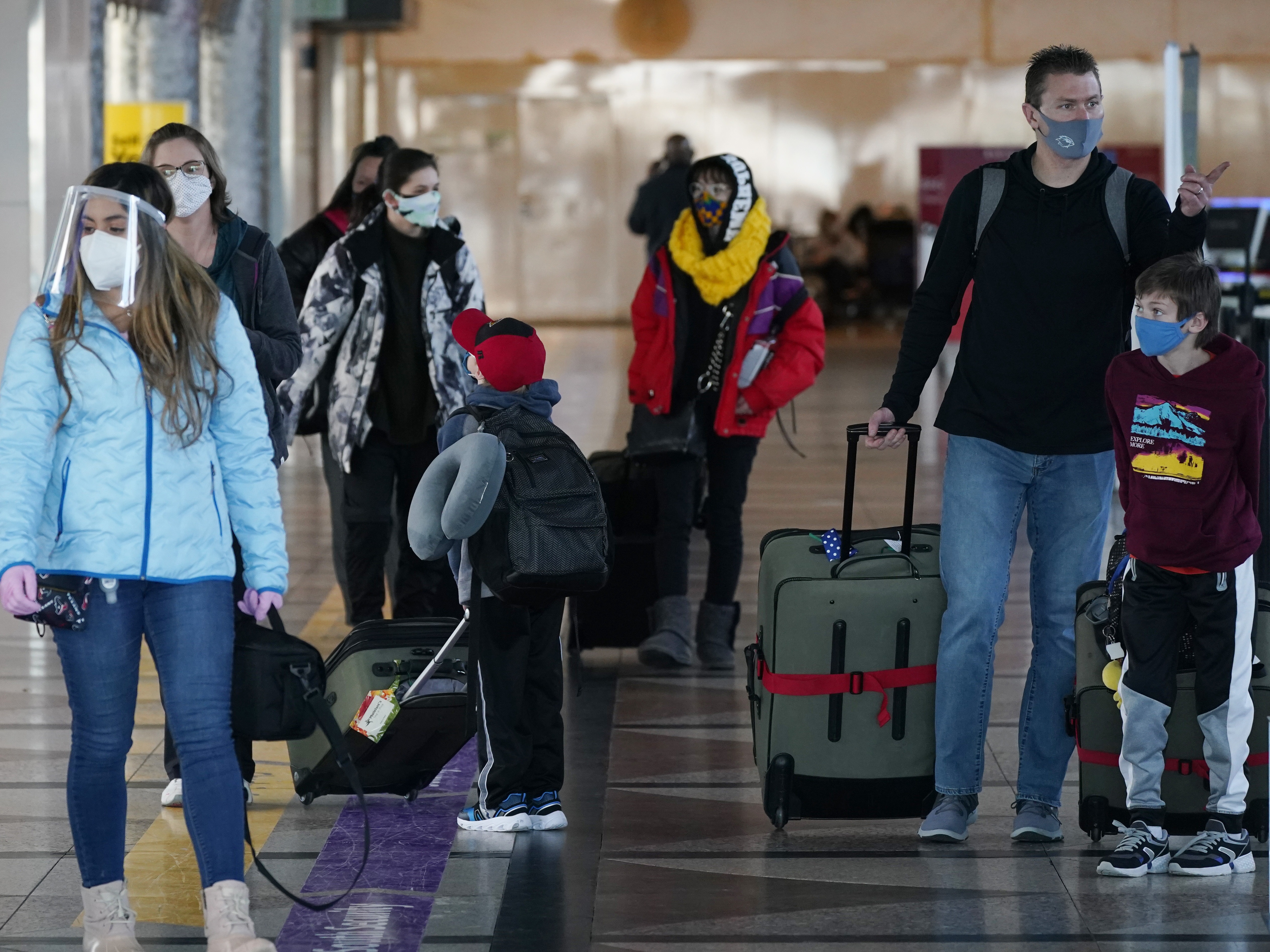
CDC Issues Sweeping New Mask Mandate For U.S. Travelers; Extends Eviction Moratorium
BY JASON BREWSLOW
Starting early next week, travelers and commuters will be required to wear face masks on nearly all forms of public transportation as part of a sweeping new order from the Centers for Disease Control and Prevention aimed at slowing the spread of the coronavirus.
The order, issued late Friday, will require masks to be worn by “all passengers on public conveyances” traveling into or within the United States, including airplanes, ships, ferries, trains, subways, buses, taxis and ride-shares. Coverings will also be required at transportation hubs like airports, bus terminals and train or subway stations. The new guidelines take effect at 11:59 p.m. ET on Feb. 1.
“Requiring masks on our transportation systems will protect Americans and provide confidence that we can once again travel safely even during this pandemic,” said the 11-page order signed by Dr. Martin Cetron, director of the CDC’s Division of Global Migration and Quarantine. “Therefore, requiring masks will help us control this pandemic and aid in reopening America’s economy.”

Travelers wear face masks in the main terminal of Denver International Airport on Dec. 31, 2020. Starting Feb. 1, travelers will be required to wear face masks on nearly all forms of public transportation. CREDIT: David Zalubowski/AP
The new order arrives at a pivotal moment in the pandemic. One year to the day since the World Health Organization declared the coronavirus a global health emergency, the U.S. has seen nearly 26 million cases and more than 436,000 deaths. And while two vaccines have already begun rolling out, troubling new variants from South Africa and the United Kingdom are raising growing alarm about whether health officials can prevent the virus from spiraling even further out of control.
Friday’s order helps underscore the importance the new administration is placing on masks as part of that effort. Under former President Donald Trump, the CDC was blocked from requiring masks on public transportation, but on his first full day in office President Biden signed an executive order requiring passengers to wear face coverings during interstate travel.
“The experts say by wearing a mask from now until April, we’d save more than 50,000 lives going forward,” Biden said.
The CDC order adds several layers of new detail on top of Biden’s executive action, listing as one of its four main objectives “the preservation of human life.”
The guidelines allow for a handful of exceptions. Children under the age of two won’t be required to wear coverings, and neither will anyone with a disability who cannot safely wear a mask. Otherwise, the order says passengers and operators are required to wear their masks at all times except “for brief periods,” such as to eat, drink or take medications.
The agency said that airlines and other operators must “at the earliest opportunity” remove any passenger who refuses to comply with the mask order. Anyone violating the order could face potential criminal penalties, but the CDC suggested that civil penalties may be more likely.
Separately on Friday, the CDC announced that it would formally extend a federal moratorium on evictions through March 31. The moratorium, which was designed to help residents who have been economically battered by the pandemic, had been scheduled to expire on Sunday, but was ordered to be renewed by President Biden as one of his first acts in office.
“Despite extensive mitigation efforts, COVID-19 continues to spread in America at a concerning pace,” said CDC Director Dr. Rochelle Walensky in a statement announcing the extension. “The pandemic has also exacerbated underlying issues of housing insecurity for many Americans. Keeping people in their homes and out of congregate settings — like shelters — is a key step in helping to stop the spread of COVID-19.”















